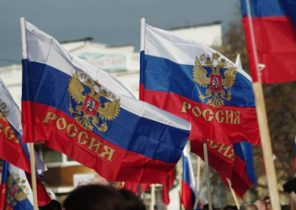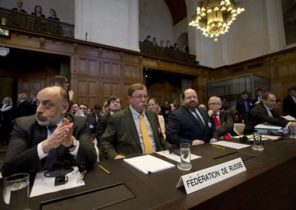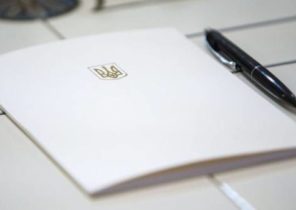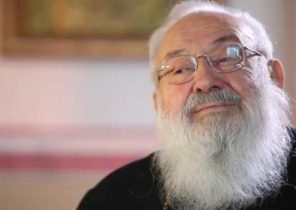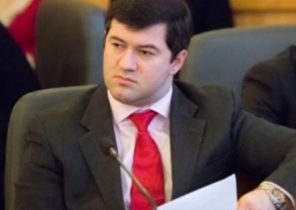The same mode, keeping the title and the name of the first person, is a different stage in the direction of easing and tightening. Like recently, under the ideological slogans were shot enemies, has now become unprincipled bureaucrats, careerists, advocating for peaceful cooperation in the international arena. Or, on the contrary, yesterday only falsified the results of elections, and today dozens of oppositionists disappear.
Early in his career, General Franco ruled Spain as a conquered territory towards the end — as a civilian autocrat, relying on the civil bureaucracy. It is this evolution in the direction of easing allowed his anachronistic regime to survive longer than he would have released the story, keep it original shape.
In our eyes, the Belarusian regime undergoes a reverse transformation. It began as an electoral dictatorship a social populist, speaking on behalf of ordinary Soviet citizens, who were willing to work for the government, but not ready for a private owner. Then passed the bureaucratic stage, when under the umbrella of the political power of the dictator work of modern professional managers. And even visited the centre of a peaceful international cooperation, when he strayed from the recognition of Abkhazia and Crimea, and brokered the Minsk talks.
In recent days, however, Lukashenko began to rule Belarus as a conquered country, and the regime goes to the state institutialization social conflict. Now the main purpose of the regime is not the preservation of the inherited economy, not strengthen sovereignty, authoritarian modernization, and the relentless persecution of poor citizens on behalf of good.
The difference is that in younger regimes, developing from more violence to lower this prosecution really has the support of many people recognized a good and in worn-out regimes that are developing in the opposite direction and fall into the bitterness later, the sanction most often fictional.
The same degree of cruelty in the young and aging regimes affect their stability, and repression at a later stage, causing more surprise and anger than paralyzing fear, even if raise the price of protest.
Strikes at enterprises, which Lukashenka was rescued from a “predatory privatization”, suggests that this is no longer the regime of the workers and peasants who are resisting the advent of the new capitalist owners. Social and regional base current of the Belarusian protest is much broader Russian protests of 2011-2012, which, although impressive by today’s standards the Belarusian mass, were presented mostly in the capital by knowledge workers. Apparently, it is much more extensive than the protests, the suppression of which is trained Belarusian power Corporation.
The security forces are ready to beat the protesting youth, but much less adults, socially close workers of factories. This can sooner or later cause a split of the security forces, which in most cases preceded the collapse of the personalistic regime.
Overheating power machines just contributes as a surprise to her scale, duration, or the social composition of protest. He causes a split in the elite, creating for the security forces an alternative center of loyalty. The fact that it is in principle possible, it is clear at least by the fact that two out of three are not admitted to the elections, the main opponents of Lukashenko — former members of the system.
Ally on the street
To expand the base of the Belarusian protest managed, including avoiding frequent in the post Communist area of foreign policy dimension of protest: “For the freedom of Europe against slavery with Russia.” “More Europe” as if implicitly included Belarusian protesters in the concept of freedom, but anti-Russian, it is unnoticed. This prevents Belarusians from premature and largely artificial choice.
To get rid of it helped Lukashenka himself. Before the elections he was arrested by Russian mercenaries, during the protests are regularly shown on local television revolutionary touring with Russian passports, took local “Yandex” and in turn blamed the hostile centers in the West, in Russia.
The arrest of the alleged vagnerova he wanted to bring down usual Western media the picture and put them in front of the question of the legitimacy of violence against the Russian intervention. But he was shot down and the usual post-Soviet space the coordinate system for native protesters and Russia. However, in the case of Belarus it was from the very beginning of their.
In Russia have different views on Ukraine and Belarus. In Ukraine, for Russian public opinion an ally can be mode, which is why we need to save. In the Belarusian case is considered friendly to the General population, so the loss mode is not so bad.
For a look at Ukraine from Russia “own” part of the Ukrainian population that need help to find responsive to their queries power, or to protect from hostile. In Belarus, “their” is more or less the entire population. Therefore, the Belarusian protest against his own and seems to be allied to Russia, power is not perceived as anti-Russian and hostile.
This difference of perception rests on the fact that in Belarus there are no serious linguistic and regional conflict, there is no equivalent in strength and duration emancipatory and nihilistic in attitude to Russia of the project of the local intelligentsia, is not subject to revision as the most important national values, the nature of the country’s participation in world war II, its outcome and the characters, and the search for individual historical identity back to painless for our times the times of the Grand Duchy of Lithuania.
But the Belarusian protest otherwise rotated relative to Russia than Ukrainian. Belarusians are aware that their dictatorship was preceded by Putin, and not trying to treat it as import from the East. It makes Belarusian protest much more free from the load of the geopolitical.
But most importantly, both the Ukrainian revolution is framed as anti-colonial and national liberation. This design is for Belarus would be artificial and narrowed the circle of protesters to a safe Lukashenko minimum. It is therefore not only one of the main opponents of Lukashenko in the elections, but also gaining their own political subjectness of the street do not resort to the national liberation rhetoric.
For Belarus, and for Russia of the turn of the 80-90’s, it is primarily freedom for ourselves and within ourselves, not liberation from the external hostile oppressor. The victorious Ukrainian revolution has disabled the same “Yandex”, which captures Lukashenko to stop the revolution in their country.
Localization of freedom
Belarusian events baffled eternal opponents, the Russian patriots and the Pro-Western Russian intelligentsia. The latter, of course, supports the Belarusian protest, although would prefer to see him as more anti-Russian content and the Kremlin in the traditional role of the villain.
Here craving for a saving rumors of Russian Riot police in the Belarusian cities. Although it is impossible to imagine a paranoid Lukashenko, who in a critical moment for yourself and just arresting thirty unarmed Russian private soldiers, suddenly fills her foreign capital, that is, swear to another country and obey the command of foreign armed professionals.
For the patriots the arrest of the Russian military, and let private, but fought in the Donbass, together with the mentioned Lukashenko opportunity to give them to Ukraine does not fit into the image of our closest allies. The peak of popularity of Lukashenko in the Russian statists have long passed. For them, if Lukashenko was a true patriot, the great common Motherland, he would join Belarus to Russia. But this has not happened for 26 years, so, Lukashenko is not interested in common great Motherland, and its own power in Malaya.
One of the main points of Russian foreign policy — noninterference in the Affairs of other governments: they can do anything while not trying to sell anti-Russian position. It is important for Moscow to show that it is more comfortable than with the West, which reaches into other people’s business and lecturing.
However, in the case of Lukashenko 2020 proven scheme fails. First, in this election formed the unusual for Moscow the situation: a dictator friendly yet louder put on sale anti-Russian stance than his democratic opponents.
Putin clearly supporting Lukashenko, not only gains, but also loses in the eyes of the Russian majority. Friends in Russia think it is not Lukashenko and the whole Belarusian people. Therefore, the one who beats people, has friends of Russia. Otherwise it will be difficult to prove due to the complete absence of protesters anti-Russian slogans. Many of Moscow’s propagandists themselves are not willing to equate the protest to Belarusian and Ukrainian.
The representatives of the Russian majority may have doubts. If Putin now support any atrocities Lukashenko, then he is capable of them. Meanwhile, the Russian President did not allow himself the same atrocities even against their eternal enemies — the liberal minority, not to mention the protest of the representatives of the majority in Yekaterinburg, Cheese or Khabarovsk, which treated more careful.
Putin is in the position to whom you have to answer for violent antics and bad manners of a close relative from the province, which actually I would like to disown, but keep the relationship, thoughts about the future division of property and an unwillingness to drop the authority of the elders in the eyes of children. However, the effect can come back. Putin has repeatedly made clear that it will be able to prevent the orange scenario, if necessary, and force. Now even the loyal citizens of Russia matched his words with what I see in Belarus, and the image that they are projecting themselves, they don’t like.
Kind stranger
There are revolutions that change the geopolitical choice countries for the sake of this and made, and there are those that do not change. Ukrainian independence — a vivid example of the geographical understanding of freedom: it is not so much the quality as the space to which it is necessary to join the franchise, a branch of which it is necessary to quickly open. It’s a working model, which led to Europe one Eastern European nation.
The lack of Belarusian protest in a prominent place for the change of geopolitical orientation makes it less clear and less interesting for Western politicians and journalists. This is the answer to a sad tweet Michael McFaul, why Belarus is so little on the front pages of Western media. Several anti-Russian posters, cartoons Putin, European flags greatly simplified the Belarusians to the top, but would narrow the protest database.
However, if the West is interested in the Belarusian revolution more than now, it would be difficult to form a proposal for Belarus. I feel that we are not talking about the Pro-Russian regime, which inhibits Pro-Western population, preventing him to make a welcome geopolitical choice.
Going to the West, Belarus will have to be in the group grateful for the liberation of the young democracies of Central and Eastern Europe. But in this group she would have stood out unreliability, the Pro-Russian sympathies, close to the Russian view of the course and the outcome of the Second world war. Belarus would be split this close-knit group, whose unity is particularly valuable at the boundaries of self-confident Russia.
Passing to Europe on many economic, social and household indicators, Belarus would not be there on the part of the same criteria by which the Western community had in the nineties Russia itself.
The change of the dictatorial regime in Belarus largely remains an internal matter than a foreign policy operation and an act of geopolitical rivalry. That is why the approaching collapse of the Belarusian regime that would follow it, much more than the Ukrainian events, tell about the possible options of political transformation in Russia, where the completion of the personalist regime of Vladimir Putin because of the mood of society may not look like a simple change of the geopolitical choice.

